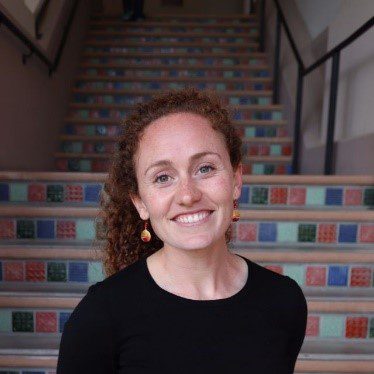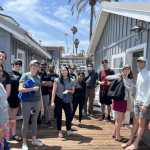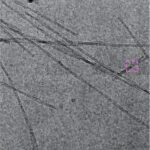
Audra DeStefano completes her Ph.D. for “Controlling Polymer Conformation and Hydration with Monomer Sequence”!
Audra joined the Han Lab in 2018 after graduating from the University of Wyoming. Her research focused on probing water dynamics on polymeric surfaces using a highly controllable polymer platform. She aimed to better understand the effects of polymer structure and chemistry on water dynamics to enable deliberate design of specialty materials for use in membrane applications.
Audra’s dissertation is on the topic “Controlling Polymer Conformation and Hydration with Monomer Sequence”. While most synthetic polymers are best described by their statistical nature, many biological polymers derive their highly tailored functions from precisely defined monomeric sequences. Sequence-controlled polymers, such as polypeptoids, present a unique tool for controlling material properties by harnessing both the robustness of synthetic polymers and the ability to tailor the inter- and intra-molecular interactions so crucial to many biological materials. Significant progress has been made towards predicting how protein folding is controlled by monomer sequence and interactions with water, but a thorough understanding of how to use polymer sequence to similarly control chain conformation and resulting functionality in synthetic polymer assemblies is lacking. Similarly, advances in understanding the effect of polymer surface chemistry and topology on hydration water dynamics and resulting polymer-solute interactions lags behind analogous protein hydration studies. Together, the ability to control polymer structure and hydration water behavior via sequence-control offers an avenue
to pursue polymeric materials with protein-like functionality.
Audra’s defense focuses on how polypeptoid sequences can be utilized to control polymer conformation and nearby water behavior. Audra first explained how monomer sequence effects on polymer conformation are probed, primarily making use double electron-electron resonance (DEER) spectroscopy. Second, how the sequence specificity of polypeptoids enables observation of multiple hydration environments within multi-chain assemblies via Overhauser dynamic nuclear polarization (ODNP) spectroscopy. Finally, she explained how these differences in water behavior are utilized to tune catalytic activity within micelles, much like proteins.
Audra’s wonderful and kind self will be very missed! Congratulations, Dr. Audra DeStefano!


Hoang passed his candidacy exam!
June 27, 2025
Martyna Judd Receives JMR/JMRO Award at ENC-ISMAR 2025
April 21, 2025
Blake Hanson Awarded Summer Undergraduate Research Grant
April 21, 2025







